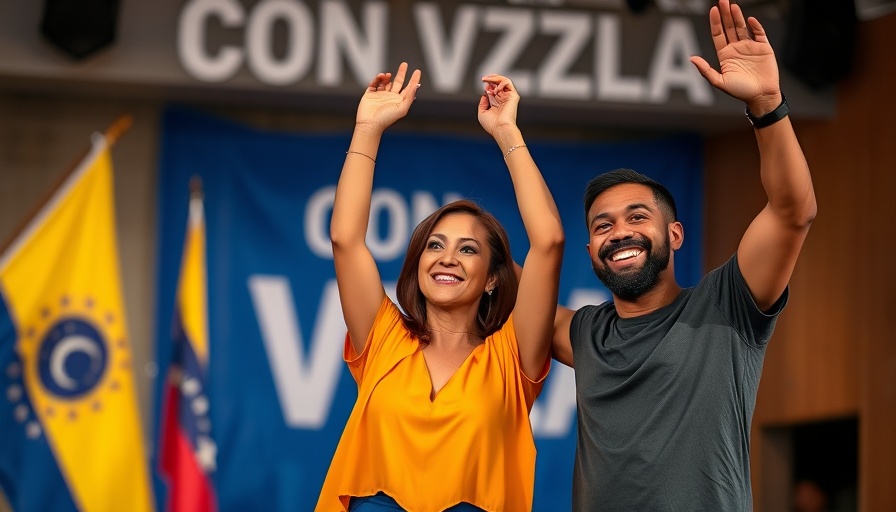
Venezuelan Opposition Responds to U.S. Gang Crackdown
In a significant move affecting the Venezuelan diaspora, opposition leaders María Corina Machado and Edmundo González have publicly supported the recent U.S. crackdown on the Tren de Aragua gang. During a joint statement made on March 17, 2025, they emphasized the need for the U.S. and Chilean governments to distinguish between violent criminals and the majority of Venezuelans who are simply seeking a better life from the oppressive regime of Nicolás Maduro.
The Complexity of Migration and Criminalization
The concerns raised by Machado and González underscore a delicate balance. The Venezuelan opposition is urging authorities to avoid broad-brush penalties that could unjustly affect honest migrants who, fleeing violence and economic collapse, have made their way to safer countries. This situation highlights a broader issue faced by many emigrants: the fear of being unjustly labels due to the actions of a small group.
Current Political Climate and Implications
As the U.S. administration ramps up its enforcement measures, including proposals involving the Alien Enemies Act to expedite deportations, the Venezuelan government vehemently opposes these policies, arguing they violate fundamental human rights. Caracas has called the move both anachronistic and harmful, insisting that the majority of Venezuelan migrants are innocent and searching for a dignified life away from repression.
Contrasting Perspectives on Venezuelan Migrants
The U.S. government's narrative positions the Tren de Aragua gang as a serious threat, suggesting they engage in activities that undermine safety in the Americas. However, critics argue this framing fosters misconceptions, conflating the actions of a few with the intentions of many. The underlying issues of migration, criminality, and national security intersect in complex ways that affect perceptions and policies towards Venezuelans abroad.
Calls for International Advocacy and Support
In their statements, the Venezuelan leaders urged international organizations and global allies to advocate for the rights of Venezuelan migrants. They called for a nuanced understanding that separates ordinary migrants from those involved in transnational criminal activities, emphasizing the need for protections and support systems to ensure their safety and dignity.
Historical Context and Future Considerations
The world has seen immigration struggles that challenge both policies and human rights. As countries grapple with rising immigration and associated crime, the risk of scapegoating entire communities becomes a pressing concern. The narrative surrounding Venezuelan migrants is but a microcosm of this larger, global issue where the rights of those seeking refuge must be defended to avoid repeating historical injustices.
Your Role in Advocacy
The time is now for communities to engage in dialogue about migration, safety, and the importance of distinguishing individuals within larger narratives. As concerns regarding Venezuelan migrants escalate, it is essential that citizens advocate for fair treatment and challenge narratives that threaten innocent lives based solely on nationality.
The implications of these discussions are profound as they not only shape policies but also the lived experiences of countless individuals. Support from allies, solidarity movements, and informed public opinion will be critical in redefining the Venezuelan narrative for a hopeful future.
 Add Row
Add Row  Add
Add 




Write A Comment